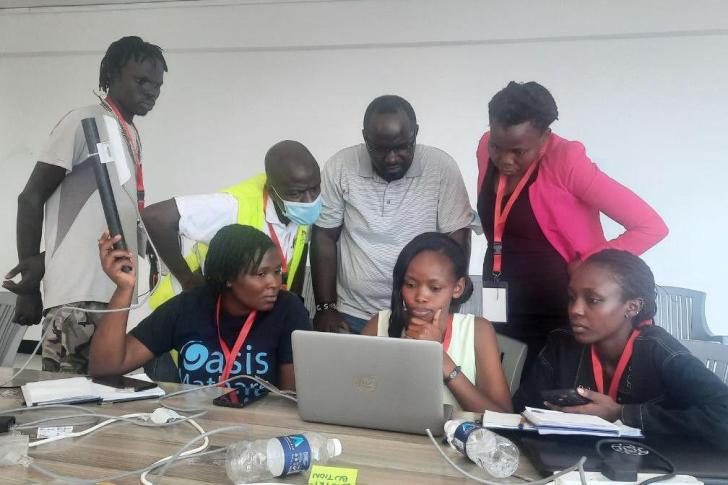
This is a closed call for partners and networks in Kenya to submit short-term projects that support community-centred connectivity initiatives (CCCIs) related to the implementation of local services. As part of the new LocNet 2024-2027 project cycle, a specific microgrant programme was designed in September 2024 – this was the first phase. In 2025, the second phase continues with existing and new LocNet partners and networks in Kenya. Organisations are invited to submit short-term project proposals to co-create and prototype community-driven digital solutions that strengthen climate resilience and advance environmental justice, with a focus on the internet of things (IoT) and sensors as well as local hosting.
Grant details
All activities related to each mini project must fall within a budget of USD 3,500. In addition, projects must be completed within a 6-month timeframe. Please note that priority will be given to one mini-project per organisation. In other words, only one project will be considered per community network. As a result of micro-grant feedback from 2024, this cycle will allow for the purchase of equipment for initiating, developing and testing digital solutions around climate resilience and environmental justice.
Activity lines
The proposal submission could either be split into different activity lines or presented as one, based on the following categories:
1. Climate resilience: Co-creating and piloting community-led approaches to climate challenges and adaptation by leveraging emerging technologies to support a community’s ability to anticipate, prepare for and adapt to the impacts of climate change, such as droughts and floods, while maintaining and improving their well-being. This is divided into:
● IoT and sensors: Peer-to-peer mentoring on designing, installing, and maintaining different sensors based on community needs i.e. water, air, soil and flood sensors/piloting IoT-enabled applications tailored to local contexts.
● Local hosting: Setting up community servers and data platforms for real-time monitoring and analysis.
2. Environmental justice: Co-creating and piloting community-led approaches to environmental justice by leveraging emerging technologies to ensure that the benefits of environmental protection and the burdens of climate change are shared equitably. This is divided into;
● IoT and sensors: Using IoT and sensors to gather evidence, piloting IoT-enabled applications/sensors for specific environmental monitoring e.g., waste tracking.
● Local hosting: Local hosting and community-owned data systems, developing offline-first platforms that communities can host locally, enabling real-time alerts, data visualisation, and decision-making tools. This will allow CCCIs to store, APC LocNet Catalytic Microgrant - 2025 page 1 of 2 process, and share environmental data in ways that respect community rights and priorities.
Target participants
Existing grassroots and new community networks (CNs) and CCCIs across Kenya.
Application requirements
The microgrant projects must adopt human rights-based and gender-, race- and territory-equality approaches, with an emphasis on women-led initiatives and the integration of a perspective on gender and power imbalances, at all levels of project conceptualisation, planning and implementation.
Successful applications will lay the groundwork for establishing an environmental COP in Kenya, demonstrating how CCCIs can leverage technology to build adaptive, sustainable and community-led responses to climate challenges. Hence, they will join a community of practice to allow documentation, learning and knowledge exchange on best practices among others on the role of CCCIs in climate resilience and environmental justice.
Monitoring and support
The LocNet team, together with the national coordinator team, will follow the process, specifically the assessment of the applications and implementation of the project as part of orientation and monitoring conversations (the frequency will be agreed during the initial call for the approved microgrant projects). In addition, an ecosystem approach that integrates participation and ownership of project participants as well as future outcome thinking will be used to ensure sustainability beyond the life of the project.
Application process
As the deadline is short, mini projects must be concise and objective. Applications will be reviewed on a rolling basis with priority given to initiatives demonstrating strong community engagement, clear social impact potential and plans for sustainable implementation.
If you are interested, please fill in the attached form online: Implementation partner country specific activities, including the micro-projects that you and/or your organisation would like to implement within a 6-month time frame.
Important dates:
● Deadline for submitting CN/CCC micro-project filled form: 03 October 2025
● Deadline for project end and reporting: 15th March 2026